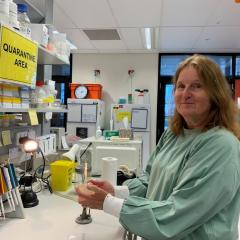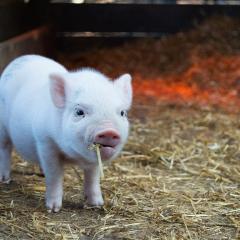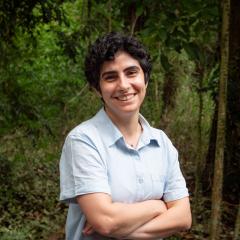The University of Queensland, The University of Melbourne, the SunPork Group and DSM, together with support from the Australasian Pork Research Institute Limited (APRIL), have secured an Australian Research Council-Linkage grant exploring the topic, ‘How to make antimicrobials in pig feed redundant, naturally’.
Total cash funding for the 4-year project was $2,027,819, with the Australian Research Council contributing $852,000 and partners contributing an additional $1,175,519, of which $359,223 derives from APRIL. The total value of the project (cash plus in-kind contributions) is $3,835,847.
Chief Investigators on the project are Professor Eugeni Roura, Professor Mike Gidley and Associate Professor Pat Blackall (Queensland Alliance for Agriculture and Food Innovation, The University of Queensland); and Professor Frank Dunshea (Faculty of Veterinary and Agricultural Sciences, The University of Melbourne).
The in-kind contributions of the SunPork Group will include expertise in pig feed formulation and pig husbandry practices, including advice on responsible antimicrobial use and advice concerning the selection of grains and pulses for the in vitro work. The involvement of DSM, a global animal nutrition and health solutions company, will be key to novel developments in the use of exogenous enzymes and feed additives (gut environment modifiers). The project will count on the expertise of DSM’s technical team lead by Dr Aaron Cowieson, Dr Anna-Maria Kluenter, Dr Maria Walsh and Geoff Handley.
The project will address a major concern in pork production, which relates to the use of in-feed antimicrobials and the association with the development of antimicrobial resistant pathogens in pigs. The overall aim of the project is to develop nutritional strategies aimed at reducing antimicrobial use in piglet feeds. The project will consist of developing a novel nutritional strategy of naturally (through maternal conditioning) boosting the natural appetite and the capacity to digest nutrients in piglets early in life. The anticipated outcome is that the new perinatal program will result in minimal bacterial proliferation and diarrhoea, minimising the need for in-feed antimicrobials in piglets.
Professor Roura and Professor Dunshea commented that the project would adopt a holistic approach by examining novel and practical ways to rear young pigs with less reliance on antimicrobials, with expected benefits for their productivity, welfare and health. A unique point of difference between this project and many conducted previously is that the studies are based on the principle of enhancing the inherent physiological potential of the pig, that will naturally prevent the onset of certain diseases that would otherwise require antimicrobial treatment.
APRIL CEO and Chief Scientist Professor John Pluske said the ARC-Linkage grant was noteworthy and timely, with both antimicrobial resistance and reducing reliance on antimicrobials key issues for the Australasian pork industry. Professor Pluske also commented that the application directly addressed a key Transformational Project objective in APRIL’s Strategic Plan, namely that of “Enhanced antimicrobial stewardship in the Australian pork industry through targeted reduction of in-feed medications without adverse health consequences”. In this context, this successful grant is another example of APRIL partnering with its members to successfully leverage external funding for a major research project of critical industry-wide importance.
This article Successful research grants to further reduce antimicrobial use in pork production was first published by Australian Pork Research Institute (APRIL) on 1 June 2020.
Contact: Professor Eugeni Roura, Centre for Nutrition and Food Sciences, Queensland Alliance for Agriculture and Food Innovation, The University of Queensland, T: +61 7 3365 2526 M: 0401 484 208 E e.roura@uq.edu.au or Dr Marta Navarro, Postdoctoral Research Fellow, QAAFI, T: +61 7 3365 1865 M: 0458999192 E: m.navarrogomez@uq.edu.au






